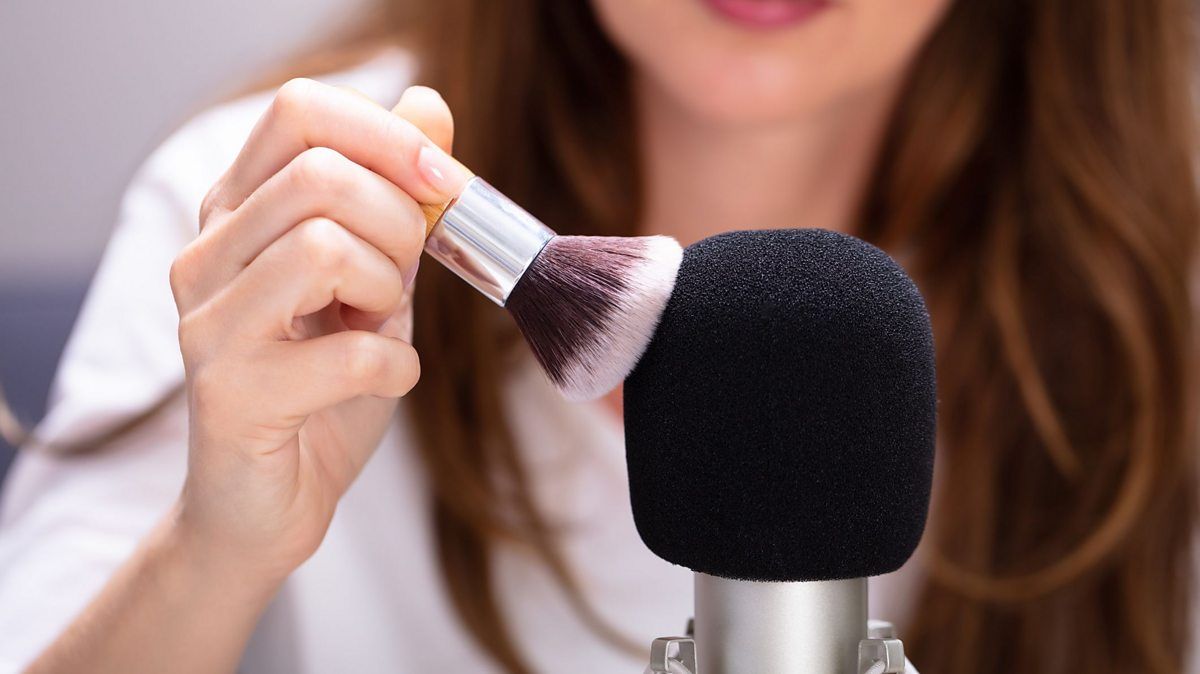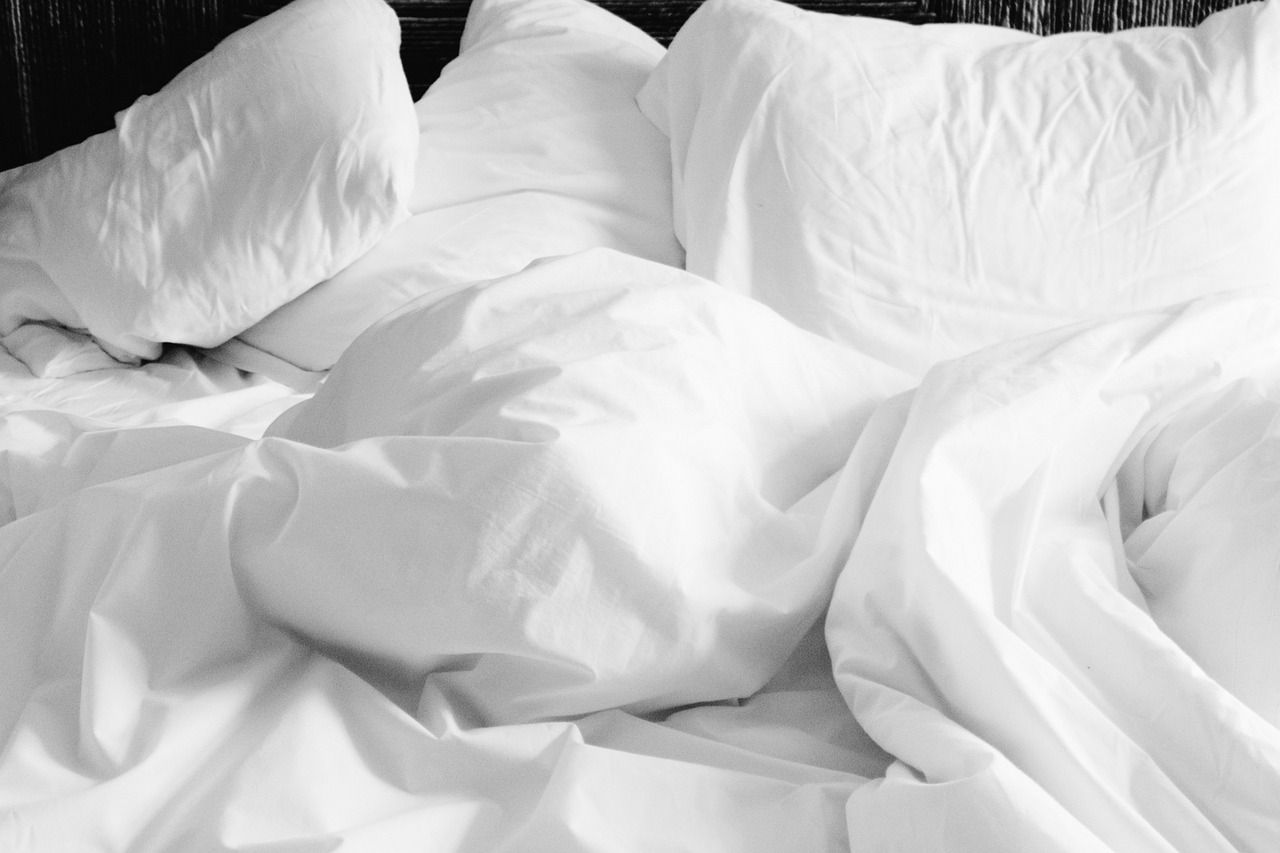
The Pros and Cons of Japanese Floor Mats For Sleep
Are you in the market for a new bed or floor mattress? Have you considered trying a Japanese floor mat? Japanese futon mattresses are alternatives to traditional beds and have several benefits for improving sleep. But there are some drawbacks to having a floor mattress, so let’s dive into it!
Have you ever slept on the floor, maybe in a sleeping bag or on an air mattress, and ended up sliding across the floor in the middle of the night? These floor mattresses are much less likely to move because of their anti-slip bottom.
Floor beds are compactable, some even with a canvas storage bag for daytime storing and moving purposes.
Just like a traditional bed, floor mattresses come in different thicknesses. Whether you want a thick or thin mattress, you can find top-rated floor mattresses and own a comfy bed.
There is a common misconception that sleeping on a floor mattress is like sleeping on a yoga mat. While there are thin floor mattresses, there are also floor mattresses made from memory foam.
A memory foam floor mattress is a good floor mattress for anyone that prefers a bit of a softer sleeping area. Maybe stomach sleepers would prefer one of the high-density memory foam floor mattresses over a regular foam mattress.
Japanese futon mattresses are often misnamed Tatami mats. Tatami mats are made from woven straw and are often used underneath the Japanese futon mattress. Tatami mats provide an extra layer of support with softness and could be compared to a larger, softer yoga mat.
What are Japanese Floor Mats and How Do They Work?
Japanese floor mats, also known as tatami mats, are traditional straw floor mats that have been used in Japan for centuries. They are made from rice straw and feature a textured surface that helps to grip shoes and keep the floor clean. Tatami mats are functional and decorative and are often used to add a touch of traditional style to homes and businesses.
Tatami mats work by absorbing moisture and preventing it from seeping into the flooring beneath. They are also effective at trapping dust and dirt, which helps to keep the floor clean. Additionally, the textured surface of the mats helps to grip shoes and keep dirt and debris from being tracked onto the mats themselves. This makes them easy to clean and maintain.


Pros of Japanese Sleeping Mats
Improve Back Pain, Circulation, And More
If you’re a back sleeper, Tatami mats can be a comfortable way to improve the alignment of your spine. The floor mattress is firmer compared to a regular mattress.
And since your entire spine is aligned, this sleeping surface decreases obstruction in your body and promotes improved blood circulation.
Plus, being closer to the floor help sleepers regulate their body temperature, making these floor mattresses perfect for hot sleepers.
Reduce Fatigue
One of the most important benefit of using a Japanese floor mat is that it can help reduce fatigue. This is because sleeping on the floor helps improve blood circulation and oxygen flow, which in turn reduces fatigue. Additionally, sleeping on the floor helps keep your spine aligned, preventing back pain and other health issues caused by poor sleeping posture.
Save Space in Your Home
A Japanese floor sleeping mat can easily be folded away or pushed into the corner of a room. There are foldable mattresses, rollable mattresses, and tri-fold mattresses. Plus, they don’t require a bed frame. You only have to make space for the mat itself.
If you have a small sleeping space without enough room for a sofa bed or a tiny bedroom, this could be a good solution to help you make the most of your space! All you need to do is clear a sleeping surface and place the floor mattress on its anti-slip bottom before going to bed.
Maintain a Good Posture
Not only do Tatami mats help improve back pain, but they can improve your posture, too. The neutral sleeping position lets your spine rest without creating knots in your back. You can wake up feeling less sore and with looser joints.
Save Money
A Japanese floor mat is much cheaper than a regular mattress, especially if you buy a high-quality one. You don’t have to buy a traditional bed frame for your Tatami mat. While it’s possible to place a regular mattress on the floor, it’s much more difficult to flip it over and clean underneath it due to its weight.
Fight Against Insomnia
Unlike regular mattresses, Japanese floor mats are made of natural materials like rice straw. This gives them a unique scent that can help some people relax and fall asleep faster. Great for insomnia!
Reduce Stress and Anxiety
There are many benefits to using a Japanese floor mat for sleep. One of the most important is that it can help reduce stress and anxiety. This is because the mat helps to ground you and connect you to the earth. This can help to calm your mind and promote relaxation.
Improve Sleep Quality
Another benefit of using a Japanese floor mat for sleep is that it can improve sleep quality. The thick and firm surface of the floor mat helps to keep your spine aligned, which reduces the number of times you wake up during the night. Additionally, the texture of the floor mat helps to stimulate blood circulation, which can help you to fall asleep faster and stay asleep longer.
Increase Energy Levels
One other benefit of using a Japanese floor mat is that it can help to increase energy levels. This is because the floor mat helps to keep the body aligned and grounded, which in turn helps to improve blood circulation and energy levels.
Additionally, the floor mat can help to soothe the mind and create a sense of calm, which can also lead to an increase in energy levels. Overall, using a Japanese floor mat for sleep can be extremely beneficial in terms of increasing energy levels.


Cons of Japanese Sleeping Mats
Can Be Uncomfortable if You Sleep on Your Side
Although Japanese floor mattresses are great for aligning your spine, they’re not very comfortable for side sleepers. Because it’s thinner than a regular mattress, it won’t alleviate the pressure on your hips and shoulders much.
When you sleep on your side, there’s a lot more pressure on those parts of your body. This can lead to poor sleep quality and decreased energy levels. To mitigate these issues, it is important to make sure that the mat is the correct size for your body and that you use a thin pillow or none at all to support your head.
You should also make sure that the mat is placed in an area with good airflow so that you don't get too hot during sleep. Stomach sleepers may find floor mattresses uncomfortable; we recommend adding an extra layer of protection with a high-quality Tatami mat and a comfortable pillow.
Unsuited to People with Poor Mobility or Certain Spine Conditions
A Tatami mat won't suit you if you struggle to get up from the ground. These floor mattresses sit directly on the ground and don’t provide the elevation of a traditional bedframe and mattress. If you have mobility issues, we suggest not getting a floor bed.
Requires More Frequent Cleaning, Especially If You Have Allergies
Japanese floor mattresses sit directly on the floor, which puts them closer to dust and dust mites. This means you’ll need to keep your floor cleaner than you’d need to with a regular bed.
If you’re prone to allergies or respiratory problems, you may need to be especially careful. Unless you’re willing to be rigorous in your cleaning, the Tatami mat may not be for you.
No matter what surface you choose to sleep on, you can start sleeping better by calming your body and mind with the BetterSleep app — try it tonight for free!
Tips on Using Your Japanese Floor Mat for Optimal Results
Japanese floor mats, or Tatami mats, have been used for centuries in Japan. Today, they are still popular because of their many benefits. One of the best ways to use a Japanese floor mat is to place it in your living or working space.
This will help to create a more comfortable and relaxing environment. In addition, using a Japanese floor mat can also improve your health. Here are some tips on how to use a Japanese floor mat for optimal results:
Place the Mat in an Area Where You Spend a Lot of Time
There are a few key things to remember when using a Japanese floor mat in order to get the most out of it. One of the most important is to place the mat in an area where you spend a lot of time. This will allow you to benefit from the relaxing and therapeutic effects of the mat.
If You are Using the Mat for Work, Try to Arrange Your Desk to Sit Facing the Mat
This will help to improve your posture and reduce stress. Additionally, when you are sitting down at your desk, it is best to have your chair facing the Japanese floor mat. This will allow you to use the mat for work purposes and get the most out of its benefits. If you have a large desk, you may want to consider placing the mat in front of your chair so that you can easily access it while you are working.
If You are Using the Mat for Exercise, Stretch and Warm Up Beforehand
When using a Japanese floor mat for exercise, it is important to stretch and warm up beforehand. This will help to prevent injuries and ensure that you get the most out of your workout. Some easy stretches to do before using the mat include hamstring stretches, quadricep stretches, and calf stretches.
You can also do some basic cardio exercises, such as jumping jacks or running in place, to get your body warmed up. By taking a few minutes to stretch and warm up before using your Japanese floor mat, you'll be able to have a safer and more effective workout.
Make Sure to Keep the Mat Clean and Free of Dust and Dirt
Keeping your Japanese floor mat clean is one of the most important tips for getting the most out of your mat. Mats can quickly become filled with dust and dirt, which can impact their performance. Make sure to sweep or vacuum your mat regularly to keep it clean and free of debris.


What Are Some of the Best Floor Mattresses to Try?
There are many different floor mattress brands, all with different styles and materials. Pay close attention if you have health issues requiring a thicker mattress, removable cover, or a mattress topper.
Rollable Floor Mattresses
Floor mattresses are a great option if you are looking for a comfortable place to sleep and want to avoid using a bed. There are a few different types of floor mattresses, but one of the most popular is the rollable floor mattress.
A rolling floor mattress is a mattress that can be easily rolled up and transported. This type of mattress is perfect for people who travel or frequently move, as it can be easily packed up and taken with you. Rollable floor mattresses are also a good option for people who have limited storage space, as they can be stored away when not in use.
Rolling floor mattresses are typically made from plush memory foam or latex, and they come in a variety of sizes. They are also available in different levels of firmness so you can find one that is perfect for your needs.
If you are looking for a comfortable and convenient alternative to a bed, consider investing in a rollable floor mattress.
Foldable Floor Mattresses
A foldable mattress is a type of floor mattress that can be folded up for easy storage. It is typically made of foam or latex with a memory foam layer and can be a good option for people who want a comfortable sleeping surface but don't have a lot of space.
A foldable floor mattress can be expensive, but it offers a lot of value because it can be used as both a bed and a couch. A folding mattress is also lightweight and easy to move around, which makes it a good option for people who like to switch up their sleeping arrangements often.
Foam Mattresses
There are a few different types of floor mattresses, but a memory foam mattress is one of the most popular types. Foam mattresses are made of polyurethane foam, which is a type of foam that is known for its durability and comfort. Foam mattresses come in a variety of thicknesses, and most people find that they are comfortable and provide good support.
Foam mattresses are also a good choice for people who suffer from allergies, as they are hypoallergenic. Additionally, foam mattresses are usually fairly affordable, and they can be easily cleaned with a damp cloth. Overall, foam mattresses are a good choice for people who are looking for a comfortable and affordable floor mattress.
Air Mattresses
Air mattresses are a type of floor mattress that is inflated with air. They are typically made out of PVC or vinyl and can be filled with air either manually or with an electric pump. Air mattresses come in different sizes and shapes, and some even have a built-in pillow. They are often used as camping mattresses, but they can also be used as floor mattresses in the home.
Air mattresses are a great option for those looking for a comfortable and affordable floor mattress. They are easy to inflate and deflate, and they can be folded up for easy storage when not in use.
They are also relatively lightweight, which makes them ideal for travel. Air mattresses are not as durable as some other types of floor mattresses, but they are a good option for those looking for a temporary bed solution.
Floor Futon Mattress
A futon is a type of floor mattress that is typically filled with cotton or wool batting. It can be used as a bed or a couch, and it is often foldable so that it can be stored away easily. Futons come in a variety of sizes and shapes, and they are relatively affordable compared to other types of mattresses.
They are also relatively lightweight, which makes them easy to move around. Some people find that futons provide good support and are comfortable to sleep on while others find them too firm.


How to Choose the Right Japanese Floor Mat for You
When looking for a Japanese floor mat, there are a few things you need to consider. The most important factor is the intended use of the mat. Most floor mattresses come in a variety of sizes and shapes. Some also come with a removable and washable cover, so it's important to select the one that best suits your needs.
If you're using the mat as a way to improve your posture, you'll want to choose a thin mat that can be easily folded up and stored away when not in use. Whatever your needs may be, there is sure to be a Japanese floor mat that can meet them. To choose the best floor mattress, you should:
Think About Size
When selecting a Japanese floor mat, size is an important consideration. You will want to make sure to choose a size that is appropriate for your space. In general, you will want to measure the space where you plan to place the mat and then choose a size that is slightly larger than that. This will ensure that the mat fits comfortably in the space and does not move around.
Additionally, it is important to consider the thickness of the mat. Thicker mats are better at providing cushioning and insulation, but they can also be more difficult to move around.
The normal thickness range for Japanese floor mattresses is 2 to 10 inches. Of course, if you intend to use yours mostly for sleeping, a thicker futon floor mattress is typically comfier. A thinner mattress is acceptable if you plan to use it just rarely for sitting or reclining.
Ultimately, the right size and thickness for you will depend on your individual needs and preferences.
Select the Appropriate Firmness
Picking the right Japanese floor mat for sleep can be a daunting task. With so many options on the market, it can be hard to determine which one is best for you.
One factor to consider when selecting a mat is the firmness. The right firmness will depend on your individual preferences and sleeping habits. If you like to sleep on your stomach or side, you'll want a mat that is soft and cushioned. If you're a back sleeper, a firmer mat may be better suited for you.
Whichever option you choose, make sure to read through the reviews before purchasing to get an idea of what others have thought about it. With so many options available, there's sure to be one that's perfect for you!
Select the Appropriate Filling
Once you've selected the right firmness and size, it's important to consider the materials used in the construction of the mat. Some mats are made with latex or memory foam, which can provide extra cushioning and support. Others are made with natural fibers like bamboo or wool, which can help regulate your body temperature while you sleep.
The type of material you choose will depend on the climate where you live and how much traffic the mat will see. If you live in a warm climate, you will want to choose a filling that is lightweight and breathable, such as cotton or wool. If you live in a cold climate, you will want to choose a filling that is heavy and insulating, such as polyester or foam.
You also need to consider how much traffic the mat will see. If the mat will be used primarily for sitting, then a light filling such as cotton or wool is perfect. If the mat will be used for both sitting and sleeping, then you will need a heavier filling like polyester or foam.
Read Reviews and Compare Prices
When looking for a Japanese floor mat, it is important to read reviews and compare prices. This will help you find the best mat for your needs and budget. Some factors to consider include the thickness of the mat, the material it is made of, and how easy it is to clean.
Thickness is important because you want a mat that will be comfortable to sleep on. Material is important because you want a mat that will be durable and easy to clean. Some materials, such as vinyl, are easy to clean but may not be as durable as other materials. Price is also important because you want to find a mat that fits your budget.
By reading reviews and comparing prices, you can find the right Japanese floor mat for you.


Care and Cleaning Instructions for Japanese Floor Mats
It is important to clean your Japanese sleeping floor mat regularly in order to keep it fresh and free of dust and dirt. The easiest way to clean it is by shaking it out or beating it with a broom.
If the mat has been stained, you can use a mild detergent or soap to clean it, but be sure to rinse it thoroughly afterward. Mats should be aired out regularly to prevent bacteria and mold from growing.
Why Is a Floor Sleeping Mat so Popular?
A floor sleeping mat is popular because it is comfortable and affordable. A floor sleeping mat is a great way to rest your body and mind. It is also a great way to avoid back pain. When you sleep on the floor, your spine is in a neutral position, which reduces the risk of back pain. Floor sleeping mats are also affordable, which makes them a popular choice for people on a budget.
Are There Any Other Ways to Get the Benefits of Sleeping on a Japanese Floor Mat Without Having to Purchase One Yourself?
There are a few other ways to get the benefits of sleeping on a Japanese floor mat, though none of them are as effective as owning your own. One way is to sleep on a futon, which is a traditional Japanese bed made from cotton or wool.
Another option is to use a sleeping pad, which can be placed on the floor or on top of a futon. Sleeping on a Japanese floor mat can help improve your posture and spine alignment and can also help reduce back pain and fatigue.
Who Should Consider Using a Japanese Floor Mat for Sleep and Who Should Avoid Them Altogether?
There is no one-size-fits-all answer to the question of who should consider using a Japanese floor mat for sleep, as the decision depends on individual needs and preferences. However, those who are looking for a more natural and healthy sleeping surface may want to give a Japanese floor mat a try.
Mats made of straw or bamboo are particularly beneficial as they promote airflow and help keep the body cool during sleep. Conversely, those who are prone to allergies or asthma may want to avoid using a Japanese floor mat, as straw and bamboo can harbor dust mites and other allergens.
Conclusion
Japanese floor mats for sleep provide a number of benefits that can improve your overall quality of sleep. They are soft, comfortable, and supportive, and they can help to align your spine and improve your circulation.
Additionally, they can help to reduce noise and vibration, which can be disruptive while you are trying to sleep. If you are looking for a way to improve your sleep quality, consider using a Japanese floor mat for sleep.



















